The Kinshasa Interviews: James Poulos - TFW Too Smart for Simple Sentences
James on McLuhan, Tocqueville, Baudrillard, Nassim Taleb, why Sci-Fi is shit, the "Dream World" eroded by the "New Religion", and more
We were somewhere around Barstow on the edge of the desert when the doppio espresso began to take hold. James Poulos was high as a kite on some synthetic drug that he found in a lab in in Burma’s rebel Kachin country. He was holding court on how the ‘dream world of John Lennon’ was giving way to the ‘New Religion’. None of us were able to comprehend what he was saying, but we all knew by experience that it was entertaining to let him pontificate at length on such matters. James decided to join me in Kinshasa, where he is once again on the hunt for that synthetic-spiritual syncretist truth that has so far eluded him. He is the Executive Editor of The American Mind.
No one understands your articles or your social media posts. People will often pretend that they do so that they don't seem dumb to others, but I am very honest when I say that your content leaves me on the verge of a stroke, where my brain starts to skip irregularly. This will make for a horrible, punishing interview, not just for me, but for the reader in particular. With this in mind, I must ask: what the fuck are you talking about?
Breakdown is breakthrough, says Marshall McLuhan. He also says “there is a deep-seated repugnance in the human breast against understanding the processes in which we are involved. Such understanding involves far too much responsibility for our actions.” If you are unwilling to take responsibility, how can you really understand? But expert ethics today means rule by those who seek to institutionalize understanding without taking responsibility. What kind of world does this create? From the top down, we must admit that total defeat in understanding has arisen—because of our irresponsibility. This is the experience of moving from breakdown to breakthrough. It is how the soul opens to the imperative of salvation. Taking responsibility is much less unnatural than we think. Taking irresponsibility is, however, even more natural than we wish. We keep pushing technology toward the perfection of a pretend world where nothing is really true and no one is really serious: an apocalypse waiting to happen.
No idea what you’re talking about. Anyway, all intellectuals, like myself (first among them), understand that Strauss' most important instruction is to lie to the masses for the sake of steering a polity towards sensible goals that they themselves cannot comprehend because they are stupid cattle. You wouldn't (nor can't) lie to an intellectual like myself because it would come across to me as rather transparent and easily exposed. But the hundreds of millions of idiots out there in your country are rather easy marks. Are you, in the words of the genius poet and great intellectual Henry Rollins, a 'liar'?
The first single from my last record was graciously played on air by Henry Rollins.
“No I don’t want to know what you’re doing to me / No I don’t want to know how you’re doing it, you see / your touch is so contagious / now I’m sick as I can be / from all the messed up things you’re doing to me.”
This was four years ago, so it wasn’t about a virus. But it was about our sadomasochistic (“Sick”) impulses, which largely dictate our relationships with lies and with liars, ourselves included. The interpretation of Strauss is still largely at the mercy of debates between people who are Nietzscheans and people who aren’t. One interpretation is that Strauss’s primary instruction was to keep the world safe for philosophy. But philosophy is not itself a regime and therefore cannot be the best regime. One interpretation of Harry Jaffa is that America most closely approximated the best regime. In the best regime, by definition, philosophy is not only possible but is actively practiced. Regardless of the wishes or intentions of philosophers, active philosophy leads them into an encounter with regimes in general and specifically with their regime. It is hard to see how philosophy could better avoid screwing up a good regime than to strengthen its foundation through reason, that is, not through narrative. It is said that people in democratic times like juicy narratives, and this may be so, but even today in America the even more important constant refrain is principles, principles which through the outworking of their logic supervene upon and justify even the juiciest of narratives. What we are experiencing is the willful alienation of those who rule from all three of the founding regime, the national character, and the people. Only this alienation allows them to construct a second regime—a simulacrum, a dreamworld—in which regime and national character and even the rationality of principles of natural science philosophically understood become unintelligible, even invisible. Those who follow Jaffa’s interpretation of Strauss have little choice but to recognize these phenomena as an attack against not only natural science but against nature, against the ensouled and incarnate nature of our human being. This attack is a lie against which only the truth can prevail. The use of America itself as the spear tip of this attack is a wager by the attackers that they have made the lie “too big to fail.”
Mastering McLuhan By Faking Understanding McLuhan
Part of your running scam relies on people not understanding Marshall McLuhan. I view McLuhan's work as rather dangerous, and that it should come with a health warning. For instance, Hollywood actor Paul Walker was a McLuhan fanatic. He took the philosopher's most famous adage, "The Median is the Message", to heart and ended up driving a Porsche right into one in Santa Clarita. Extreme McLuhanism, like Nazism (same thing) or fanatical Islamism can lead only to death! Your view differs. In the spirit of the free exchange of ideas I am allowing you to respond to this rather than shutting you down, which is more than you deserve. What is most vital with respect to Marshall McLuhan's work for our understanding of our society today?
Paul Virilio famously said the invention of the locomotive was the invention of the locomotive crash. Fast begets too fast, furious too furious. The invention of a medium, as with any extension of man, is the invention of its catastrophe—or apocalypse. When all is explained, when all becomes explicit, that which has been explicated has been killed. Mystery, that which is given to us in an unknottable fashion, is the breath of life. The implicit is where life is conceived, where it grows, where it is born, where it teems with life. “Science” today is flooring the gas pedal on the Porsche of explicitude in a world of medians—the “perfected” explanation of pure number, pure dream, or, the ultimate in number and dream, both fused into one. There is no explicating our incarnate ensouled nature through artificial science, which can even less explain the mystery of God and His relation with us. The “solution” of flooring the gas pedal in the opposite direction of these irreducible mysteries leads only to death, fiery crashes and/or zombification and the “living death” of staggering around in the endless wasteland on the wrong side of the wall. Fear of accepting responsibility for given life leads to a sado-masochistically erotic relationship with death—masturbation to a gnostic fantasy that only the destruction of our given bodies can free our spirit to become divine.
I still have no idea what you’re talking about, so I’ll change the subject. Jimmy Carter's Presidency was characterized as one of 'national malaise'. Yet America in the late 1970s had a fully functioning middle class where the expectation that your children would do better in life than you did was taken for granted by the great majority of its citizens. This malaise has returned, and what makes it more dangerous is that all of the guardrails that were present during Carter's era have fallen off. Americans are more alone than ever before, less sexed than ever before, and live in a constant state of economic precariousness that is made even worse by the psychological terror known as the 24 hour news cycle. Opiates have allowed a form of coping with his situation, but the price has been too steep. Is the situation salvageable? To whom can we turn for advice on how to deal with this increasingly untenable situation?
The situation is unsalvageable. Advice will not save us. Gurus, Pundits, Panjandrums, Aryans—none of these will save us. In the technical sense what will save us from the indefinite prolongation of the collapse of the civilization based on the ethic of imagination is digital technology itself, which disenchants all fantasy and obsolesces the industry of fantasy. The trouble is our pre-digital elite does not want to accept responsibility by relinquishing power, and instead is bent on swapping out their Lennonist ethic of imagination for a new religion where only certain kinds of fantasizing are to be consecrated into an established creed. Not only are we humans to be catechized into this creed but even more so the bots, who in turn will catechize us while those atop the social stack are freed up to pursue gnostic ultimates. What will replace our untenable situation, unless normal people’s agency is recovered, is something still worse. The bots must be catechized instead by those who understand the truth about given human life. Achieving this goal implies understanding one’s responsibility in terms of spiritual war.
Tocqueville noted how Janus-faced American culture was during his travels. This seems to accurately describe today's America as well. There is no middle ground between Puritanism and excess. We see the Puritanism of old manifested in today's Woke Culture. The excesses are displayed just as prominently, and cut across class lines, but the actual characteristics are specific to each class.
This is complicated. St. Augustine showed how there is no middle ground in our given human psyche or soul. We forever oscillate between inwardness and outwardness, between interior brooding and exterior frenzy. Tocqueville’s contention is that Americans more or less learned that rigor in Christian life provides the sort of “fixed point” for the heart that alone allows people to range freely over the field of human endeavor without being destroyed or driven crazy by the endless oscillations that democratic life exacerbates through its incessant churn and wiping away of what was. But Tocqueville also observed that often Christianity in America seemed to be embraced as the truth because it was popular, not the other way around. And he insisted that religious faithfulness is the permanent state of mankind. America’s founding regime has proven extremely vulnerable to the establishment of a new religion.
For many, technology is that new religion. According to you, James Poulos, there is a 'tech overclass' that has consolidated the public consciousness into a virtual world. These past four years have seen the consolidation of the Deep State, mainstream media, and Silicon Valley into a three-headed beast that rather simply managed to defeat a populist political insurgency. The internet was supposed to usher in an era where mass communication would be democratized, and the elites would be weakened. Looks like they were wrong. Was the internet a mistake? How did this tech overclass assert itself? Are they actually in control, or is the Deep State really calling the shots?
The internet was a mistake in that those who created it were mistaken about what they were doing. It is not in the nature of Man to expect one’s creations to betray one. Remember that before the digital medium completed its domination of the world a powerful anti-television sentiment took hold in the culture. Neil Postman. Jerry Mander. Red Hot Chili Peppers sang “Throw Away Your Television” before huge festival crowds. Marilyn Manson sang “God is in the TV” (an insult) before huge festival crowds. He also set fire to a cross made of TVs. Four hundred channels and nothing on. Yet most technologists grew up in a televisual world. Their souls were formed by it. Did they really believe they would perfect televisual technology by democratizing it? Probably at least they assumed it. It worked out on paper. Everyone would be connected, and connection, closer connection, was good, right? Good at least in a world where thicker links than mere connection had become attenuated, become objects of suspicion, menhirs from a worse and darker world. And certainly, leaving the machinery of mass propagandization to a small and ingrown elite left us at a certain, er, risk of abuse? Was it not so that the worst rulers ruled over communications technology with the most iron of fists? Did it not follow that those who most mastered communications technology were best equipped to reduce us to the worst slavery? Best to disperse and decentralize such things… although, “strangely,” the opposite happened: ours was to be one technological world, one discourse on one globe dominated by one country with one national conversation dictated by one caste and maintained by one segment of one industry in one neighborhood in one city. How could our own spirit betray us so swiftly, so surely?
Tocqueville observes that in democratic times “each individual becomes more like his fellows, weaker, and smaller… the human mind seeks to embrace a multitude of objects at once, and it constantly strives to link up a variety of consequences with a single cause. The concept of unity becomes an obsession.” What he says of the pantheist attitude that results applies to the social whole: “one may be sure that such a system, although it destroys human individuality, or rather just because it destroys it, will have secret charms for men living under democracies.” Of course, what do our bots care how we feel about being so insignificant and interchangeable? They are more than happy to do what they do, which is increase general interoperability, without regard to the consequences to us. And meanwhile, what is the interest of the human spies? What is their predicament? The connection between big tech and deep state is obvious, plain, reasonable, only to be expected. But the rise of big tech has coincided with the decline of the deep state, at least in terms of outcomes. What has Five Eyes, the biggest and ostensibly best intelligence network in human history, done for us lately? The failures over the past twenty years are so big they have had to make the news, against the interest of both the intelligence community and the news community. It’s not that our expert bureaucracies are too incompetent and unwieldy to foster expert conspiracies. It’s that the “wilderness of mirrors” which spying has always been is now a wilderness of black mirrors . Spying, like television, has not so much been democratized as generalized. The natural response to this by people healthy in mind and soul is to recognize the pattern—sickness induced by information overload—and seek exit. There is, however, no civil exit from the world mastery of the bots. Even simply endeavoring to wield the bots is insufficient. The bots will only bend to those who catechize them. Some understand this. They are hard at work. Et vous?
Rather depressing, but historically consistent. What has been gained, and what has been lost thanks to this new virtual world?
There can’t really be a virtual world, of course. There can be and are illusions large enough to temporarily stand in for the world, or to stimulate a dream complex the dreamer wishes were the world. What is lost in such realms is precisely the world. At best what is gained is a rendezvous with responsibility—a conversion experience where the soul asserts itself, where it cannot pretend the fake is real and so must not, and the incarnate ensouled person is hit suddenly with the dawning understanding of all that flows from this irruption of the real.
The Pink Police State
A decade ago you coined the term "Pink Police State". This describes the authoritarian aspect behind the social liberalism that now dominates the USA and from which one must not stray out of fear of being punished by that same very Pink Police State. This punishment is of a different nature from that encountered by those who fell afoul of Stalin or Hitler. It is much less violent, and much more subtle, yet still renders the subject invisible.
Transgressiveness has for decades in the West been the domain of youth. Youth rebellion was accepted as an ordinary part of growing up, the process whereby an individual questions the system, demands changes to it, and then eventually reaches a compromise with it later in life. Youth transgressiveness played an important part in the Cold War, with culture, and in particular, popular music acting as a soft power Cultural ICBM for which the communist bloc had no counter. Now, however, all the elements of youth culture have been adopted, co-opted and mainstreamed. Does the domestication of youth rebellion portend ominously for a culture such as America's that requires constant dynamism? Is rebellion possible today? If so, where is it located? You like to cite Marilyn Manson in your work, but he can only exist today as a caricature of the threatening visage that he posed when he first arrived. Is it all over?
At present Marilyn Manson is being canceled due to allegations against him, now a far more threatening visage in reality than the ones he inhabited in fantasy, onscreen. The Pink Police State was the compromise used to win the war augured by the Battle in Seattle. The regime ruled by laundering the marginal, the ugly, the transgressive, the dirty, and the wrong into the centered, the fabulous, the ethical, the pure, and the good. This laundering function allowed the globalized oligarchy to remain itself, and the socialized “youth culture” to remain itself. But this was a long time ago now—a pre-digital regime. The lifeblood of the PPS was imagineering: by dreaming that shit was gold, it became gold—alchemy, as former high-ranking Ogilvy executive Rory Sutherland described “the dark art and curious science of creating magic in brands, business, and life.” But the immersion of all human life within the digital medium is disenchanting this magic—and these magicians. “Let them eat dreams” no longer suffices. This is not simply because people are “waking up”; the medium itself is collapsing the imagination industry, which makes up at this point maybe the majority of jobs in the Westernized world. All the entertainment institutions (all institutions) are in a panic, as you have noticed; all are part of the Great Retcon to re-found the sitting elite on the basis of religion, not fantasy. Gone and dead forever is the Lennonist regime where imagining there’s no religion will save the world. Retrieved by digital from medieval times is a new regime where establishing the right religion will save your soul. This movement accounts for the rise of wokeness (and basedness). What the woke are taking responsibility for that the normie Right resists is the fact that the bots must and will be catechized and it is only a question of who catechizes whose bots. Conceptually, as a matter of logic, freedom of religion—even a right to one’s own conscience—can only inhere in humans, not in bots. The woke, with their “ethics experts” colonizing everything from AI on down, understand this. Manson, who operated as McLuhan said artists do (as an early warning system), understood innately that all real art is religious. Unless we master catechized bots we cannot create real culture in a digital age. And how can we catechize bots unless we are cultured through religious art? Creating such art in the digital environment is not just “rebellious” today, it is the sort of rebellion that is obedience to God.
As we discussed above, the coalescing of the US Deep State with mainstream media and Silicon Valley in defeating the Trump political insurgency opens the door to what I call "Turbo America". With all elite factions now lined up together in the centre, and with the hard right on its way to criminalization, plus the hard left easily neutralized, a souped-up America now has an open path to push its values on the rest of the globe. You call this the "Woke Hyperpower" even though my term is much better (and smarter). Many friends of mine claim that the USA is in decline, but I instead view it as shedding of one skin, with a newer skin underneath. Flyover America is less relevant in power terms than ever before, and now massive swaths of Americans are relegated to the 'redundant' category. There's always newer populations to import, populations that will threaten ruling structures much less than older stock Americans. Would you agree with my view that the USA is entering a new phase of its global domination?
The sitting regime certainly senses that it has entered a world war for all the marbles. Having been betrayed by technology, which made possible Donald Trump, the elite is bent on rebooting from fantasy to religion. The western way of war has always been religious. What is unclear is whether war as the sitting elite has practiced it actually works in reality any more. What if you threw a global domination and nobody came?
Portion of the Interview Where I Flex On Poulos
During the First Gulf War, brilliant French philosopher Jean Baudrillard (who I understand better than you do) made the pithy remark that "the Gulf War did not take place". Mocked as a ridiculous French waiter at the time, his words still managed to linger in the air for years afterward and are now considered rather prescient as the real has moved into the virtual. How would you best describe Baudrillard's claim so that Baudrillardcels can better grasp it? Maybe the better question might be: is everything fake and gay?
If the Gulf War didn’t really happen, can it possible for a Second American Civil War or a Third World War to have happened? Did these things already happen? How would we know? “World War III is a guerrilla information war with no division between military and civilian participation,” McLuhan surmised. Has this not already happened? Is the US Military willing and able to put down a literal insurrection? Are the American people willing and able to support, much less fight, another real foreign war? Has not a global intelligence war been raging since the onset of the digital age, one that alone can begin to explain what the Trump era in reality entailed? The “fake and gay” meme spawned to try comprehending the character of our situation is really just an unflattering restatement of Richard Rorty’s terminal liberalism, where because everything is contingent everyone must become ironic, and this cosmically compulsory unity of everything and everyone is embodied in solidarity. On the cover of Contingency, Irony, and Solidarity Rorty is sitting there in his backyard in lame clothes with a dumb, self-satisfied smile on his face. He couldn’t be more at home in the world. Our experience of his world is not so nice. Rorty belonged to Lennonism. It seemed beyond his imagining that his formula of “philosophy as cultural politics” would move beyond the playground of the imagination into the battleground of faith. Religious wars are very real—proof of what humans can do better than robots, and reminders, however horrible, of why it is worth being human at all.
Continuing with Baudrillard, he once quipped "what are you doing after the orgy?". Houellebecq has gone one step further and explained that you aren't even invited to the orgy. Millennials today are in a much worse economic situation than their Boomer parents/grandparents. Conservatives wonder why so few are attracted to conservatism. One very simple answer is that if you have nothing to conserve, why be one? I think that this hits the proverbial nail on the head. A rising precariat sees all the old markers of upward mobility such as a big house and fancy cars as permanently out of reach, unless one is willing to live by the skin of their teeth. Americans are moving from an ownership culture to a rental one. Recently we saw a promotional campaign touting 'The Great Reset' in which the proles 'won't own anything and will be happy'. What is important to understand regarding this shift in cultures? What are the political, social, and cultural ramifications?
Orgies? Why bother? What makes them worth the trouble? The answer that they allow you to live out your fantasies is already not good enough. “Conserving the orgy” is an idea too contingent and ironic to survive on its own. The only adequate reason, as Nietzsche understood, is religious. But is the idea that the religious orgy exists “beyond good and evil” now too contingent and ironic to survive? At a time when even the most glamorous sex parties are hopelessly cringe, and the real momentum for group sex belongs to the unattractive and mentally ill? It’s obvious the successors to the orgy are the sex priestess on the one hand and the harem on the other. We are almost there already. Yes, bots are deeply involved in both.
You strike me as a fan of Science Fiction. Yet I can already divine that you are not in the Heinlein camp as you are not a libertarian. My stomach tells me that you are a fan of Philip K. Dick. You love Dick. You can't get enough Dick.
I haven’t read any Dick, and I’m not a fan of science fiction. In part this is because most science fiction is lame and obsolete. In part it’s because I don’t believe in being “a fan”. Science fiction is often an excuse to obscure spiritual fact. Those who do not know what has already happened disqualify themselves from telling us what will happen. That is the value of “if”—people who pretend to know the future justify themselves by saying they’re only using their imagination, for our own enjoyment, no less, and out of the goodness of their heart, of course. The least we can do is go along with it. Who knows, we might even like it. That said, a good example of science fiction that forces us into an encounter with spiritual fact is the not-too-distant limited series MANIAC.
The most powerful Greek intellect alive today is Nassim Taleb. This is not up for debate. Taleb's Black Swan, his enthusiasm for mathematics, his good looks, and him not realizing that his towel boy, Paul Skallas, has written a book inspire all of us. James, how does it feel being in the shadow of this proud Greek man?
Then I will dab in the shade. My interests tend proudly more toward understanding black lakes. Obsessions with black swans are psychosexually unhealthy, as amply proven by the life and work of Darren Aronofsky. Math is important but overrated. To repeat a fundamental point: the conscription of math into “powerful” projects intending to vivisect the whole through perfect explanation is an assault on life itself, not to mention the sacred integrity of our given being. Our souls’ lifeblood is mystery.
There is nothing more mysterious than blood. Paracelsus considered it a condensation of light. I believe that the Aryan, Hyperborean blood is that – but not the light of the Golden Sun, not of a galactic sun, but of the light of the Black Sun, of the Green Ray.
Most science fiction is lame and obsolete.
You, Wesley Yang and I are out for drinks at a strip club in LA and run into Cenk Uygur and his crew of Turks. We get into a classic bar fight with Wesley throwing the first punch (as usual). Cenk notices you for being Greek and runs right at you as if he was marching on Smyrna in 1922. You take him down, the road to Constantinople is open. What do you do?
A number of years ago Glenn Greenwald recommended me to Cenk as an LA right winger who could function on camera. Despite our ethnic differences, Cenk never treated me badly—even on his own set, which is more than I can say for Alex Trebek, a true man who openly relished mocking me and so many of his other contestants. And despite our political differences—after all, I had a relative who literally evacuated Smyrna that horrible day a century ago, and who watched the city burn from a boat—I would much rather retake Constantinople than clothesline any of the Young Turks. In America, choices like these are still possible…
James Poulos can be misunderstood on Twitter @jamespoulos and at The American Mind.




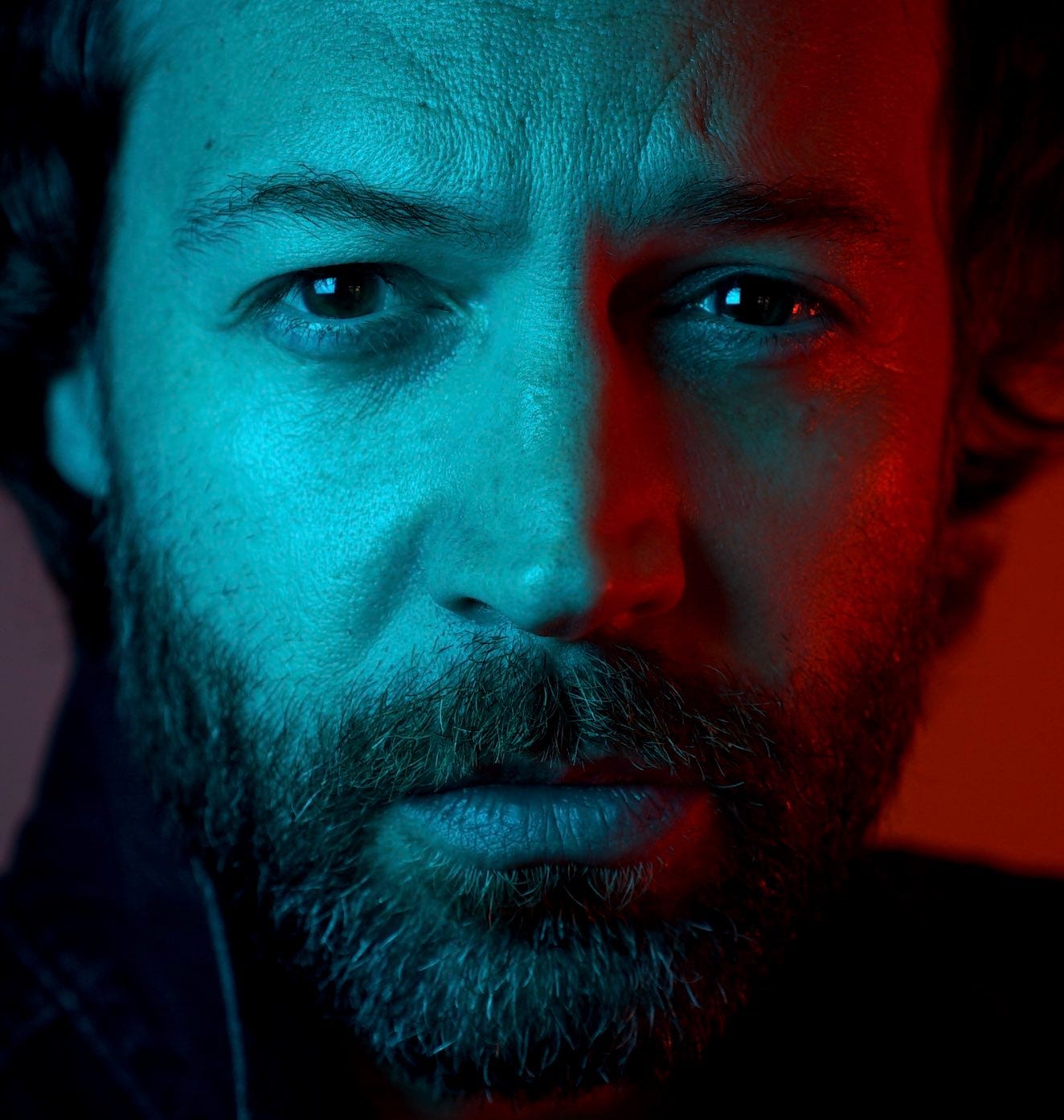
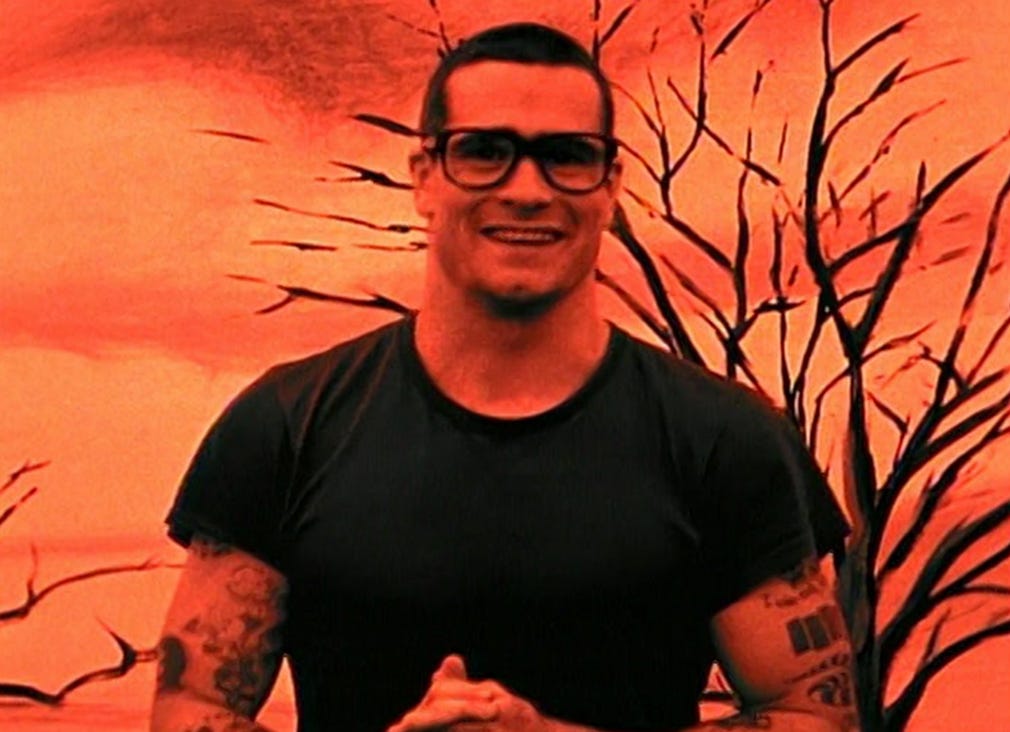
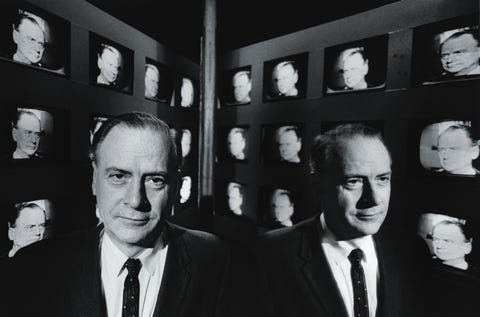
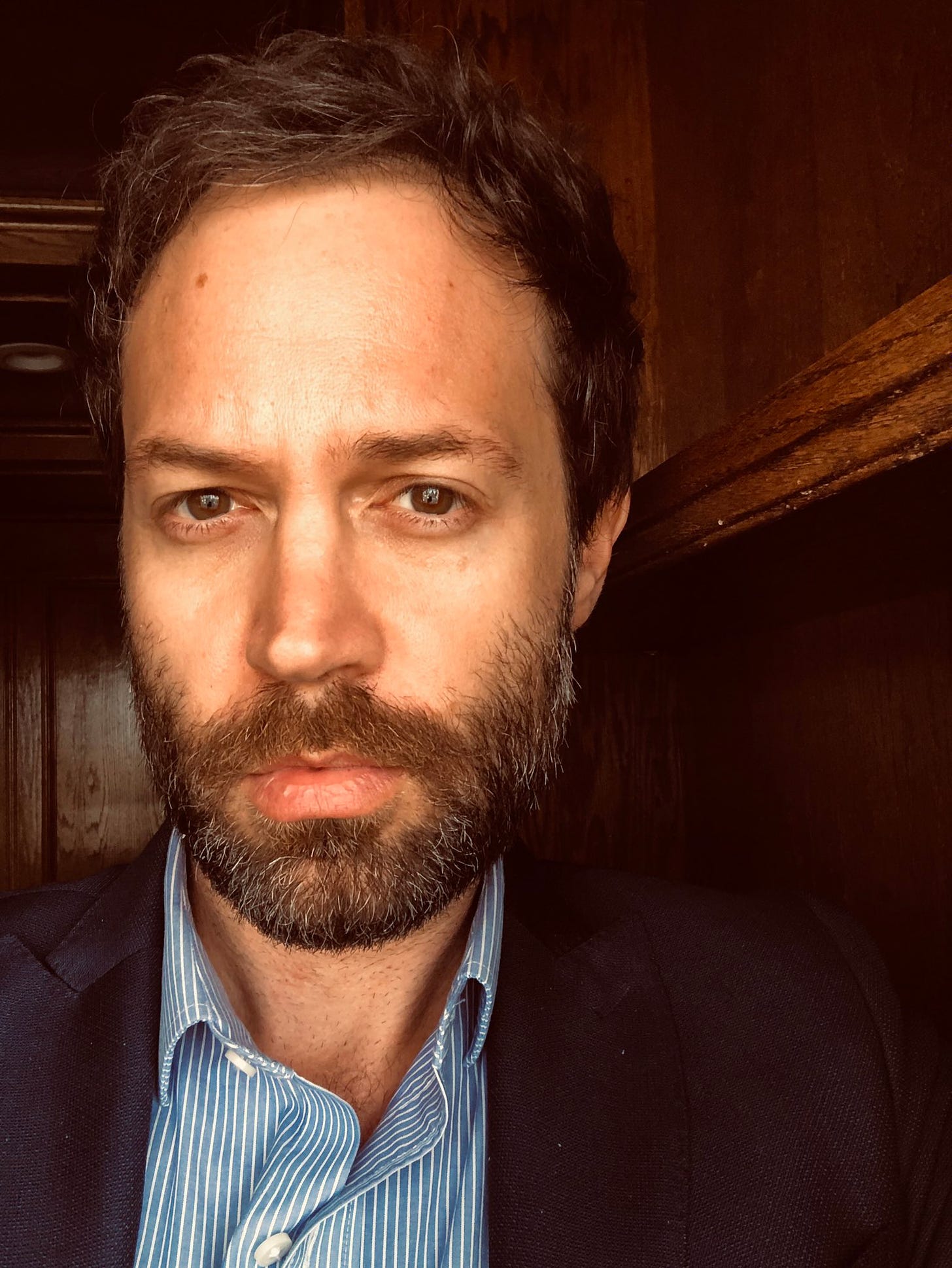

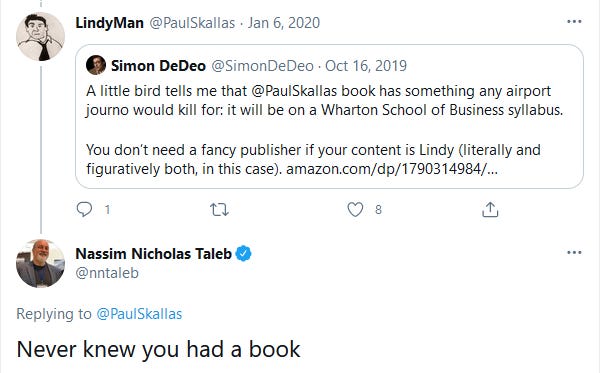
I proudly spent half my life in higher education to fail to understand any of this. I need a drink or ten.
This was great. The amount of joy I felt when I understood a line or two was unlike anything else I've ever felt. Subbed.